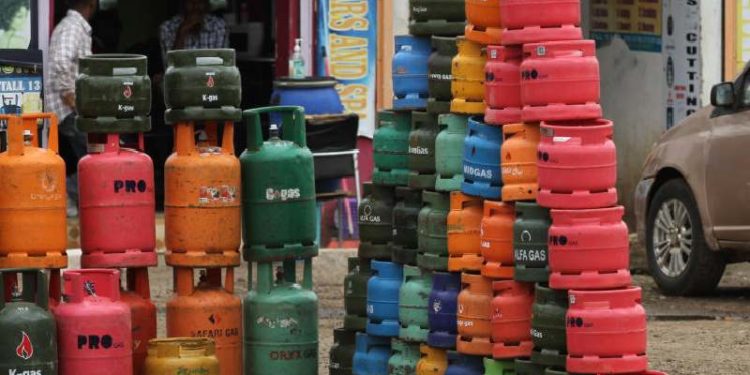The government has unveiled plans to import 30 percent of cooking gas through the National Oil Corporation of Kenya to control the price of the commodity.
Currently, the 13kg cylinder gas is retailing at kes 3,440 from kes Sh3,113 while the 6kg cooking gas cylinder is being refilled at Kes 1,560 up from Kes 1,441 while the 35 kg cylinder is being refilled at Kes 8, 760 from Kes 8, 191.
The current rise in gas prices is attributed to the Russia-Ukraine war coupled with the government imposing the 16% VAT on the commodity at the beginning of the year.
The National Oil’s quota is aimed at forcing private importers to lower the cost of liquefied petroleum gas (LPG) and ultimately retail prices following the review of regulations that reserve 30 percent of cooking gas imports to the State corporation and carry out its role of influencing market prices.
“The Petroleum Products Quota Allocation shall be as set out in the First Schedule and the purpose of the quota allocation will be to ensure price stabilisation in an unregulated pricing regime,” Energy and Petroleum Regulatory Authority (Epra) in the Draft Petroleum (Importation) (Quota Allocations) Regulations, 2022.
The corporation, formed to stabilise and influence fuel prices, has largely been forced to follow the dictates of the market controlled by private players.
Unlike petrol, diesel and kerosene prices, which are adjusted on 15th of every month and stay in place for one month, cooking gas prices are not controlled.
Nation Oil’s gas imports will be stored at the new Kipevu Oil Terminal, which is nearing completion, and will strengthen the government’s hand in influencing gas prices through control of wholesale prices.
The corporation was originally mandated to import 30 percent of the country’s petroleum products, including LPG, however it lost its rights when the government opened the importation market to private firms in the 1990s.
The rise in the cost of cooking gas has piled pressure on families that are struggling with daily bills due to job losses and drastic cuts in earnings in the wake of the coronavirus pandemic.
Cooking gas has become the preferred energy source for households that can afford it in major towns due to its convenience and because it is cleaner than other cooking fuel.




